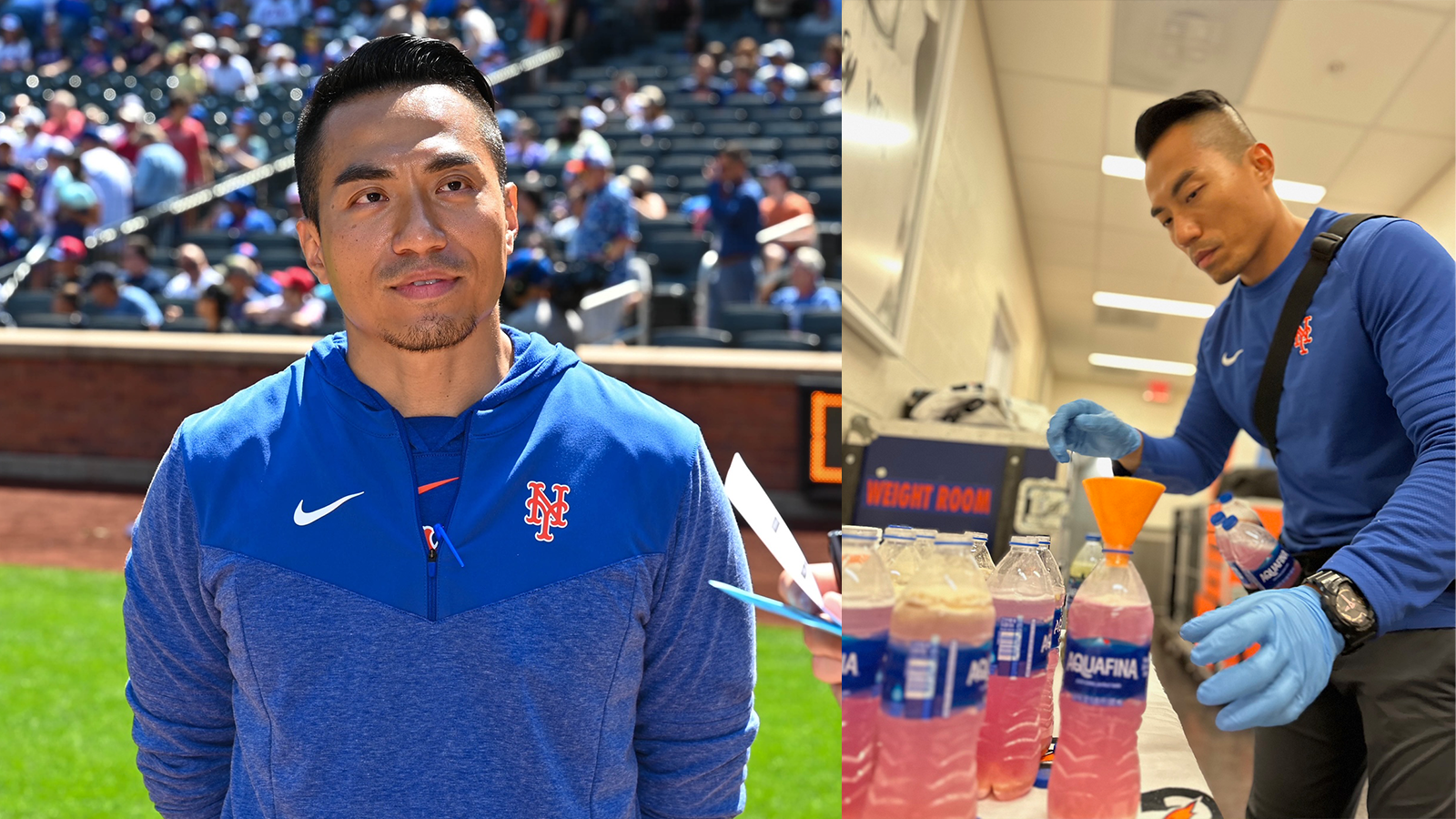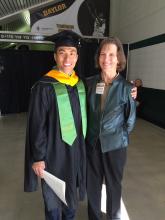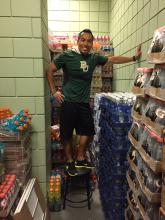Baylor Nutrition Sciences Graduate is a Major League Success

When Jeremy Chiang was looking at Nutrition graduate programs, he knew he needed to be at a school with a high-performing Division 1 athletics program, and Baylor University fit the bill. Fast forward nearly a decade, and Chiang is now the Major League Performance Nutrition Coordinator for the New York Mets organization working full time with the major league roster.
From his time at Baylor to his role now, Chiang has moved up the sports nutrition ladder through dedication, a strong work ethic, and a continually rising reputation for excellence. During his time in the Baylor Nutrition Sciences master’s degree program, he served as a sports nutrition graduate assistant with Baylor Athletics and as a nutrition educator for a local clinic. He also spent time outside of his assistantships, volunteering with the Baylor Athletics nutrition program, gaining valuable experience and connections.
Following his graduation from Baylor, Chiang completed his dietetic internship at Iowa State and was then offered a job as the Sports Dietitian Assistant at the University of Florida. It wasn’t long though before Baylor called him back to Waco. A job opportunity opened up in Baylor Athletics and Chiang became the Assistant Director of Sports Nutrition and was promoted to Associate Director a year later.
“During that time, I gained a tremendous amount of experience working with all of the Baylor sports programs—football, basketball, soccer, baseball, acrobatics and tumbling, golf, tennis, softball” he says. “Since I had been a graduate assistant with the Athletics Department, it was like coming home.”
Chiang’s next job opportunity took him to Buffalo, New York when the Toronto Blue Jays recruited him to work for their AAA team. He was soon promoted to overseeing the entire minor league nutrition system and then received a second promotion a year later to become head of nutrition for the Toronto Blue Jays, kicking off his first experience in the major leagues.
As he wrapped up the 2022 season with the Blue Jays, the New York Mets requested permission to interview Chiang for a position in their organization.
“It was a really good fit, and coincidentally, my wife is from Long Island, so it worked out perfectly,” he says. “And the rest is history!”
As the Major League Performance Nutrition Coordinator, Chiang travels with the team and manages day-to-day nutrition operations, along with overseeing the Mets organization’s minor league nutrition program. His role has three main emphases—clinical nutrition, sports performance nutrition, and food service. Chiang works very closely with the team’s other health professionals—team doctor, medical staff, physical therapist, etc.—as well as coaches—strength and condition coach, pitching coach, hitting coach, etc.—and the team chef. It is a highly collaborative, team-based environment.
“We want to all be moving in the same direction, so we can be a cohesive and comprehensive,” Chiang says.
Reflecting back on his time as a student at Baylor, Chiang credits the variety of practical opportunities he was exposed to as formational experiences in his journey. For example, his engagement with the local health clinic taught him valuable lessons about therapeutic cooking related to chronic diseases and conditions as well as nutritional considerations for a wide range of population groups. He also praises Baylor’s small class sizes, noting that this allowed personal relationships with his professors.
“They would always challenge me to think outside the box. It was an open, family-based environment,” he says. “The professors were all about helping you and challenging you. They would never say no to any questions you have or any interests you have. They would just ask, ‘How are you going to get there? How can I help you get there?’ or ‘I know someone that has similar experience who may be able to help you.’”
Gaining new experiences and being open-minded—lessons he learned in the Baylor Nutrition Sciences program—are also the recommendations Chiang would pass along to other aspiring sports nutritionists. He notes that even the most mundane tasks of a graduate assistant are building blocks for the knowledge and experience of a professional in the field.
“I’ll give you an example. How would I know how to manage our spring training facility complex fueling station if I hadn’t been stocking the fueling station myself at Baylor at 4:20am back in 2014? How would I know how much labor is needed? What’s the cost?” he says. “Every step matters. Everything comes full circle.”

